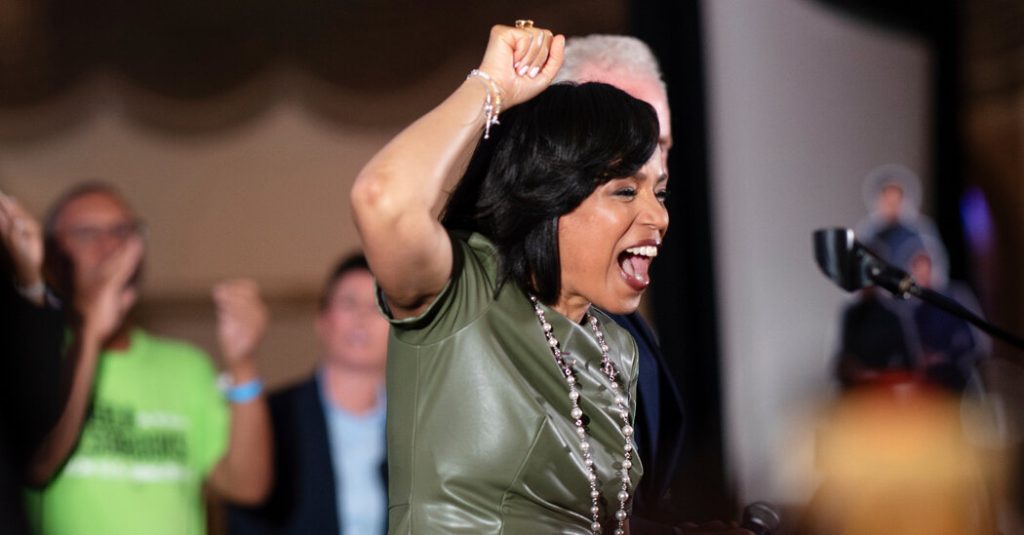The victory of Angela Alsobrooks in the race for Maryland governor has been seen as a significant milestone for Black women in politics. Donna Brazile, the first Black woman to manage a presidential campaign, expressed her satisfaction at seeing Alsobrooks defeat an affluent male candidate with the backing of House Democratic leadership. Alsobrooks had previously interned for Brazile, highlighting the interconnectedness and support within the Black female political community. Black female candidates often face challenges in fundraising and cultural acceptance, but recent successes, such as Alsobrooks’s win following on the heels of the election of the state’s first Black governor, show progress in breaking down barriers.
The road to increased Black political participation has been a long one, starting with the fight for the right to vote and continuing through efforts to register Black voters and prepare them to serve in office. The emergence of successful Black and female political organizations has played a role in enhancing fundraising abilities and providing support to candidates like Alsobrooks. These organizations have worked together to promote and uplift Black women in politics, collaborating on fund-raisers and campaigns to ensure as many Black women as possible have the opportunity to succeed in elections.
The support and solidarity among Black female candidates such as Alsobrooks, Lisa Blunt Rochester, and Susie Lee have been crucial in advancing their political careers and increasing representation in government. While Lee did not ultimately win her race, she expressed joy at the successes of Alsobrooks and Rochester, emphasizing the importance of their achievements as breakthrough moments for Black women in politics. The collective efforts of these candidates and their supporters echo the struggles and triumphs of Black women in politics throughout history, underscoring the significance of their victories in breaking down barriers and reaching new milestones.
In the context of an evolving political landscape, Alsobrooks’s victory represents a step forward for Black women in politics and highlights the progress being made in addressing issues of fundraising and cultural acceptance. The success of Black female candidates in recent elections, coupled with the growing expertise and experience of Black and female political organizations, signals a positive trajectory for increased representation and empowerment of Black women in government. The support and collaboration among Black female candidates and their allies reflect a commitment to advancing the political participation and success of Black women and breaking down obstacles to achieving equitable representation in elected offices.
As Donna Brazile noted, the journey towards greater Black political participation has been a multi-stage process, from securing voting rights to supporting and preparing Black voters to serve in political office. The continuing efforts of Black women in politics, such as Alsobrooks, Rochester, and Lee, demonstrate a commitment to building on past victories and expanding opportunities for Black women in government. The significance of their achievements cannot be overstated, as they represent a breakthrough moment in the ongoing struggle for greater representation and empowerment of Black women in politics.


